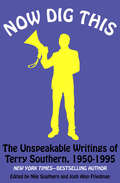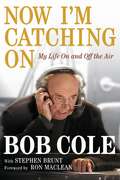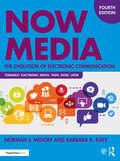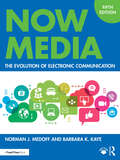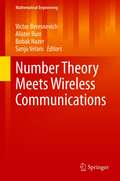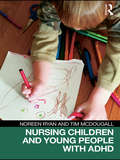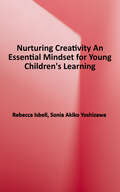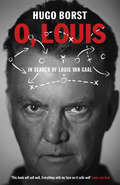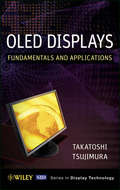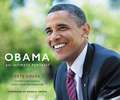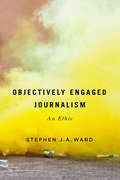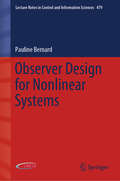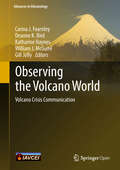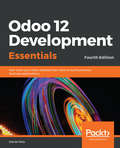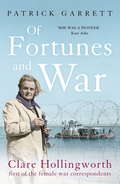- Table View
- List View
Now Dig This: The Unspeakable Writings of Terry Southern, 1950–1995 (Terry Southern Ser.)
by Terry SouthernAn unforgettable chronicle of an era by one of America&’s wildest—and most brilliant—comedic and literary minds Edited by Nile Southern and Josh Alan FriedmanStarting with his landing at the Battle of the Bulge, Terry Southern showed a knack for winding up in the world&’s most interesting places. He spent the fifties on the Left Bank of Paris, the sixties in mod London, and the seventies touring with the Rolling Stones. When the Beatles rolled out their famous pantheon of movers and shakers for the cover of Sgt. Pepper, Terry was the only guy wearing shades. When police broke heads during the &’68 democratic convention in Chicago, Southern was there to bear witness. And when Stanley Kubrick needed someone to make Dr. Strangelove funny, there was only one man qualified for the job. As the golden age of rock &’n&’ roll wound down, Southern never stopped writing, and his prose never lost its trademark intensity. Filthy, fierce, and relentlessly dazzling, these letters, essays, stories, and interviews are an electric testament to one of the keenest wits of the twentieth century. This ebook features an illustrated biography of Terry Southern including rare photos and never-before-seen documents from the author&’s estate.
Now I'm Catching On: My Life On and Off the Air
by Stephen Brunt Bob ColeHockey's most famous voice, now in his own words.If you are a hockey fan, you know Bob Cole's legendary voice. He has done the play-by-play for some of hockey's best-remembered games, including the Summit Series, Canada's gold-medal game in Salt Lake City, and twenty years of Stanley Cup finals. The infectious excitement in his voice, his boyish love of the game, and his uncanny ability to anticipate the play have earned him the affection of generations of fans, induction into the Hall of Fame, and the unofficial title of best hockey broadcaster ever. Now, for the first time, readers will see Cole at the centre of the story rather than watching it from the broadcast booth. We meet the young man growing up in Newfoundland in the years before it joins Canada. We see him talk his way into Foster Hewitt's office and into his first job. And of course we see some of the most cherished players in the game backstage: on the plane back from Russia in 1972, rubbing elbows with Bobby Orr; in the hallway on the old Montreal Forum, running into Jean Beliveau; meeting young players like Steve Stamkos, who grew up listening to him on Hockey Night in Canada. Written with the expert help of massively bestselling author and respected broadcaster Stephen Brunt, these stories come to life with the charm and detail of a conversation with Cole. They sound like Cole. No one has been closer to the game over the years than Cole, and no one is more closely associated with all we love about the game than the man whose eyes we've seen it though. Now we will see so much more through those same eyes and in that unforgettable voice.
Now Media: The Evolution of Electronic Communication
by Barbara K. Kaye Norman J. MedoffNow in its fourth edition, this book is one of the leading texts on the evolution of electronic mass communication in the last century, giving students a clear understanding of how the media of yesterday shaped the media world of today. Now Media, Fourth Edition (formerly Electronic Media: Then, Now, Later) provides a comprehensive view of the beginnings of electronic media in broadcasting and the subsequent advancements into ‘now’ digital media. Each chapter is organized chronologically, starting with the electronic media of the past, then moving to the media of today, and finally, exploring the possibilities for the media of the future. Topics include the rise of social media, uses of personal communication devices, the film industry, and digital advertising, focusing along the way on innovations that laid the groundwork for ‘now’ television and radio and the Internet and social media. New to the fourth edition is a chapter on the amazing world of virtual reality technology, which has spawned a ‘now’ way of communicating with the world and becoming a part of video content, as well as a discussion of the impacts of the COVID-19 pandemic on media consumption habits. This book remains a key text and trusted resource for students and scholars of digital mass communication and communication history alike. The new ‘now’ edition also features updated online instructor materials, including PowerPoint slides and test banks. Please visit www.routledge.com/cw/medoff to access these support materials.
Now Media: The Evolution of Electronic Communication
by Barbara K. Kaye Norman J. MedoffNow in its fifth edition, this book is one of the leading texts on the evolution of electronic mass communication in the last century, giving students a clear understanding of how the media of yesterday shaped the media world of today.Now Media provides a comprehensive view of the development of media and the subsequent advancements into ‘now’ digital media. Each chapter is organized chronologically, starting with print, radio, and television, then moving to the ‘now media' of today, and finally exploring possibilities for the media of the future. Topics include the rise of social media, uses of personal communication devices, the film industry, virtual reality, digital advertising, and the innovations that laid the groundwork for ‘now media.' This fully updated fifth edition features new chapters on video games and the business of, and careers in, ‘now media.' Discussions on rapidly evolving ‘now media' stakeholders, such as influencers and YouTubers are included, and attention is paid to AI throughout the book.This book remains a key text and trusted resource for students and scholars of digital mass communication and communication history alike.
Now Say This: The Right Words to Solve Every Parenting Dilemma
by Julie Wright Heather TurgeonA powerful new parenting book that gives parents the exact words to solve any sticky parenting situation!A toddler meltdown over the wrong pair of pants, siblings fighting in the back of the car, kids crying when you try to leave the house...Parents have the best intentions to be patient and loving, but in the heat of the moment, they too often find themselves feeling helpless, desperate, and so frustrated that they resort to yelling, threatening, bribing, or caving. Now Say This solves the dilemma: how can you be empathic and effective at once? Based on the popular 3-step "ALP" model the authors have taught thousands of parents in their clinical practice, and written in a friendly, balanced, and research-based tone, Now Say This addresses issues such as, * Tantrums * Engaging cooperation * Sibling relationships * Screentime * BedtimeBest of all, it answers the question, "Now, what do you actually say?" using scripts and body language from real life examples. Now Say This is a guide that transforms remarkable ideas into practical how-to's that busy parents can use right away.
Number Theory Meets Wireless Communications (Mathematical Engineering)
by Alister Burr Victor Beresnevich Bobak Nazer Sanju VelaniThis volume explores the rich interplay between number theory and wireless communications, reviewing the surprisingly deep connections between these fields and presenting new research directions to inspire future research. The contributions of this volume stem from the Workshop on Interactions between Number Theory and Wireless Communication held at the University of York in 2016. The chapters, written by leading experts in their respective fields, provide direct overviews of highly exciting current research developments. The topics discussed include metric Diophantine approximation, geometry of numbers, homogeneous dynamics, algebraic lattices and codes, network and channel coding, and interference alignment. The book is edited by experts working in number theory and communication theory. It thus provides unique insight into key concepts, cutting-edge results, and modern techniques that play an essential role in contemporary research. Great effort has been made to present the material in a manner that is accessible to new researchers, including PhD students. The book will also be essential reading for established researchers working in number theory or wireless communications looking to broaden their outlook and contribute to this emerging interdisciplinary area.
Numerical Simulation Algorithm of Electromagnetic Field for Grounding Problems in Power System Substation Grounding Grids
by Zhong-Xin LiThis book focuses on numerical methods for grounding problems in substation grounding systems, which are rooted in horizontal multilayered earth models. The book discusses both theories and engineering applications and provides case studies to verify the accuracy of the methods introduced. Up to ten horizontal multilayered soil models were considered. This book employs numerical algorithms for Galerkin&’s method, including Galerkin&’s method of moments, Galerkin&’s boundary element method, and hybrid algorithms based on a variety of basis functions that have emerged as a result of simplifying Galerkin&’s method of moments. These numerical methods include both frequency and time domain algorithms that can be used to numerically simulate transient and steady state grounding problems in substation grounding grids. The most outstanding feature of this book is the incorporation of the frequency- and time-domain quasi-static complex imaging method (QSCIM) for point current sources in layered conducting media and its closed-form Green&’s function, as well as analytical algorithms for calculating the spatial two-dimensional line integrals of mutual impedances and inductances into numerical algorithmic modeling of electromagnetic fields, which greatly improves computational speed and accuracy.
Nursing Children and Young People with ADHD
by Tim McDougall Noreen RyanADHD is one of the most commonly diagnosed behavioural disorders in children and young people. It is a complex and contested condition, with potential causes and treatments in biological, psychological and social domains. This is the first comprehensive text for nurses and other health professionals in this field. Nursing Children and Young People with ADHD explores the evidence, incorporating and expanding on the new NICE guidelines for practice in this area, to provide an essential knowledge base for practice. The text covers: causes, diagnosis, co-morbidity, user and carer perspectives, assessment, treatment and interventions (including those suitable for use in schools), prescribing and the legal background. An invaluable text for pre-registration student nurses on mental health and children branches, this will also be a useful reference work for post-registration nurses and health professionals seeking evidence-based recommendations for practice.
Nurturing Creativity: An Essential Mindset for Young Children's Learning
by Rebecca Isbell Sonia Akiko YoshizawaInspiring and supporting innovative thinking Young children have a great capacity for creativity that thrives when nurtured. Early childhood teachers have the opportunity to inspire children’s innovative thinking and doing by Including creative opportunities across all domains of learning- Designing a beautiful space that encourages children’s experimentation and play- Extending children’s learning and challenging their thinking- Documenting children’s thought processes and displaying their work- Involving families and the community in children’s creative endeavors- Reflecting on your beliefs and practices about creativity and nurturing your creativity Learn how to support children as they problem-solve, explore and share new ideas, and collaborate with others, and watch their confidence and capableness grow.
O / Exorcismos de esti(l)o
by Guillermo Cabrera InfanteDos libros experimentales reunidos en un volumen en el que brilla el inigualable talento lúdico de Guillermo Cabrera Infante En este volumen conviven dos libros próximos en el tiempo de Guillermo Cabrera Infante: la colección de artículos y ensayos O, publicada originalmente en 1975, y el libro de piezas experimentales Exorcismos de esti(l)o, aparecido en 1976. En el primero, el autor despliega su peculiar ingenio creador, en ocasiones satírico y burlón, para describir facetas de su cotidianidad y de la vida contemporánea, haciendo referencia a protagonistas tan diversos como su inigualable gato Offenbach y los miembros de la policía secreta. En Exorcismos, una colección repleta de saber clásico y sarcásticas investigaciones literarias, brilla el talento lúdico del Cabrera Infante, así como su obsesión por las sorpresas del lenguaje, plasmada en una serie de retruécanos, juegos de palabras multilingües e ingeniosas manipulaciones tipográficas que evocan a e.e. cummings y al OuLiPo. La crítica ha dicho:«Guillermo Cabrera Infante era un grandísimo escritor.»Mario Vargas Llosa «Uno de los mayores y mejores renovadores de la prosa en castellano, un clásico de vanguardia.»Fernando Savater «Su talento verbal era extraordinario, tanto de viva voz como por escrito, aunque esto último lo sepa cualquiera que haya leído sus libros.»Javier Marías «Cabrera Infante trajo al sector desarraigado a la fuerza de Cuba las virtudes de la parodia, la sátira y el humor.»José Miguel Oviedo, Letras Libres
O Livro Secreto das Vendas
by Paulo de VilhenaUm poderoso livro com ferramentas para quem quer ser bem-sucedido, na carreira e na vida O Livro Secreto das Vendas é um livro sobre performance em vendas — mas também em qualquer carreira profissional ou na vida. Na perspetiva de Paulo de Vilhena, mentor empresarial com mais de 15 anos de experiência, o que determina o sucesso em vendas não é muito diferente do que facilita o sucesso na vida. Neste livro, de uma forma perspicaz, clara e de grande utilidade, o autor revela-lhe os 9 segredos das vendas: Psicologia do Sucesso • Planeamento Estratégico Funil de Vendas • Gestão do Tempo • Psicologia das Vendas Dinâmica das Vendas • Processo de Influência Esferas da Influência • Reunião de Vendas Este é o conhecimento de que necessita para ser bem-sucedido na sua atividade e aceder ao mapa mental dos comerciais de excelência para conseguir materializar resultados extraordinários. Domine os segredos que o levarão a alcançar os resultados com que sempre sonhou
O mundo pelos olhos da língua
by Manuel MonteiroUm novo livro de Manuel Monteiro, em defesa da língua, contra as falácias e os erros que a dominam. Manuel Monteiro gosta da língua portuguesa. Gosta particularmente quando é bem falada - o que nem sempre acontece na forma como nos expressamos no nosso quotidiano ou mesmo naquilo que ouvimos na televisão e na rádio. No seu novo livro, Manuel Monteiro ensina-nos a pensar com clareza e a evitar determinadas falácias e erros comuns no nosso discurso. Porque pensamento e linguagem são indissociáveis, e quando um é claro, o outro é claríssimo. Os Portugueses deixaram de se intitular, passaram a auto-intitular-se. O Português já não se proclama coisa alguma; ele autoproclama-se. De ego inflado, o Português reluz. Convenhamos: tem mais pinta. Repare: ele não se domina nem se controla; ele autodomina-se e autocontrola-se. É outra loiça. CRÍTICA A POR AMOR À LÍNGUA «Este livro diverte, ensina, corrige, chama a atenção, ilustra, melhora-nos, dá vontade de ler - é um achado. É um elogio da nossa língua. Ninguém se sinta atacado. Estamos sempre a aprender. Bravo Manuel Monteiro (que não conheço) que o escreveu.» Francisco José Viegas «Por Amor à Língua é um livro chocante e salvífico. Manuel Monteiro não está a debater questiúnculas estilísticas - está a lutar contra a maneira como a grande maioria dos portugueses usa a língua.» Miguel Esteves Cardoso, Público «Uma obra em defesa da complexidade e beleza do Português que escrevemos. Missão mais nobre não há.» Expresso «Manuel Matos Monteiro é autor de um notável trabalho de vigilância da Portuguesa língua.» António Jacinto Pascoal, Público
O seu Roteiro para Ter Êxito em Eventos para Escritores
by Gabriel Martimiano Pires Pavarti K. TylerO seu Roteiro para Ter Êxito em Eventos para Escritores por Pavarti K. Tyler Conecte-se com leitores de modo direto e os torne em fãs para a vida toda programando, organizando e planejando eventos sucedidos para escritores, esse livro vai ensiná-lo como fazer isso! Conecte-se com leitores de modo direto e os torne fãs para a vida toda programando, organizando e planejando eventos sucedidos para escritores, esse livro vai ensiná-lo como fazer isso! Você se sente confiante atrás do teclado, mas fica nervoso por ter que interagir com outros amantes de livros pessoalmente? Talvez você esteja tentando imaginar quais eventos vão ser melhores para suas forças naturais e oferecer um impacto duradouro nas vendas, talvez já tenha participado de muitos eventos presenciais, mas não tem nenhuma ideia do porquê que eles não funcionaram tão bem quanto você esperou. O seu Roteiro para Ter Êxito em Eventos para Escritores está aqui para lhe ajudar! Em apenas algumas horas, você vai aprender como criar oportunidades para encontrar seu público, aumentar a eficácia das vendas em papel em locais de compradores de livros frequentes e criar situações que vão atrair leitores para ler o seu livro! Você vai aprender como encontrar, programar e se preparar para uma variedade de eventos de escritores assim como aproveitar aqueles eventos para animar novos e possíveis leitores, com esse guia, você vai receber conselhos específicos e úteis para: · Programar eventos em livrarias · Colaborar com organizadores de eventos · Escolher os melhores festivais de livros para participar · Fazer o máximo autógrafosMaking the Most of Book Signings · Preparar o trecho perfeito · Criar uma exibição de livros atraente · Manter a calma durante a parte de perguntas e
OLED Display: Fundamentals and Applications (Wiley Series in Display Technology #28)
by Takatoshi TsujimuraThis book covers all of the aspects necessary to the design and manufacturing of OLED displays. Topics include emission mechanism, material selection, device processing, manufacturing issues and countermeasures and display design basics. In addition, the book defines elements of OLED such as Thin Film Transistor (TFT) backplane design and processing details, including Low Temperature Poly Silicon (LTPS) process and circuit integration, and high yield method to manufacturer. Researchers and developers are aiming at making large OLED televisions and companies such as Samsung and Apple are rumored to be using OLED display for new screens. In addition to discussing the current composition of OLED, the book also covers the future for OLED technologies and displays. The Society for Information Display (SID) is an international society, which has the aim of encouraging the development of all aspects of the field of information display. Complementary to the aims of the society, the Wiley-SID series is intended to explain the latest developments in information display technology at a professional level. The broad scope of the series addresses all facets of information displays from technical aspects through systems and prototypes to standards and ergonomics
Oath Keepers: Patriotism and the Edge of Violence in a Right-Wing Antigovernment Group
by Professor Sam JacksonSince 2008, the American patriot/militia movement—right-wing antigovernment groups who portray themselves as fighting encroaching tyranny—has grown exponentially. Oath Keepers is among the most visible and vocal of these organizations. Formed in 2009, Oath Keepers gained notoriety for its involvement in the Bundy Ranch standoff of 2014 and the Malheur Refuge occupation of 2016. The group gives voice to a recurrent form of American politics: virulent distrust of the government combined with a valorization of violence.Sam Jackson takes readers inside the world of the most prominent antigovernment group in the United States, examining its extensive online presence to discover how it builds support for its political goals and actions. Through an extensive textual analysis of the group’s publications, Jackson explores how Oath Keepers draws on core American political values and pivotal historical moments of conflict and crisis from the Revolutionary War to Waco to Hurricane Katrina to cast its adherents as defenders of liberty. He details how Oath Keepers makes sense of the contemporary United States, how it provides members with models of political behavior, and how it lobbies the wider American public to join the group. The first book-length investigation of the contemporary patriot/militia movement, Oath Keepers sheds new light on what animates groups that pose a growing threat to American security and political culture.
Obama: The Historic Presidency In Photographs
by Barack Obama Pete Souza<P>Relive the extraordinary Presidency of Barack Obama through White House photographer Pete Souza's behind-the-scenes images and stories--some published here for the first time--with a foreword from the President himself.During Barack Obama's two terms, Pete Souza was with the President during more crucial moments than anyone else--and he photographed them all. Souza captured nearly two million photographs of President Obama, in moments highly classified and disarmingly candid. <P>Obama: An Intimate Portrait reproduces more than 300 of Souza's most iconic photographs with fine-art print quality in an oversize collectible format. Together they document the most consequential hours of the Presidency--including the historic image of President Obama and his advisors in the Situation Room during the bin Laden mission--alongside unguarded moments with the President's family, his encounters with children, interactions with world leaders and cultural figures, and more. <P>Souza's photographs, with the behind-the-scenes captions and stories that accompany them, communicate the pace and power of our nation's highest office. They also reveal the spirit of the extraordinary man who became our President. We see President Obama lead our nation through monumental challenges, comfort us in calamity and loss, share in hard-won victories, and set a singular example to "be kind and be useful," as he would instruct his daughters. <P><b>A New York Times Bestseller</b>
Objectively Engaged Journalism: An Ethic (McGill-Queen's Studies in the History of Ideas #78)
by Stephen J.A. WardA timely call for a new ethic of journalism engagement for today's troubled media sphere, Objectively Engaged Journalism argues that media should be neither neutral nor partisan but engaged in protecting egalitarian democracy. It shows how journalists, professional or citizen, can be both objective in method and dedicated to improving a global public sphere toxic with disinformation, fake news, and extremism. Drawing from history, ethics, and current media issues, Stephen Ward rejects the ideals of neutrality and "just the facts" objectivity, showing how they are based on invalid dualistic thinking with deep roots in Western culture. He presents a theory of pragmatic objectivity and applies it to journalism. Journalism's role in interpreting culture, he argues, needs a form of objectivity that embraces human strengths and limitations. Defining responsible journalism as situated, imperfect inquiry, Objectively Engaged Journalism is one of the first systematic studies of the ethical foundations of engaged journalism for a media that is increasingly perspectival and embedded in society.
Objectively Engaged Journalism: An Ethic (McGill-Queen's Studies in the History of Ideas)
by Stephen J.A. WardA timely call for a new ethic of journalism engagement for today's troubled media sphere, Objectively Engaged Journalism argues that media should be neither neutral nor partisan but engaged in protecting egalitarian democracy. It shows how journalists, professional or citizen, can be both objective in method and dedicated to improving a global public sphere toxic with disinformation, fake news, and extremism. Drawing from history, ethics, and current media issues, Stephen Ward rejects the ideals of neutrality and "just the facts" objectivity, showing how they are based on invalid dualistic thinking with deep roots in Western culture. He presents a theory of pragmatic objectivity and applies it to journalism. Journalism's role in interpreting culture, he argues, needs a form of objectivity that embraces human strengths and limitations. Defining responsible journalism as situated, imperfect inquiry, Objectively Engaged Journalism is one of the first systematic studies of the ethical foundations of engaged journalism for a media that is increasingly perspectival and embedded in society.
Observer Design for Nonlinear Systems (Lecture Notes in Control and Information Sciences #479)
by Pauline BernardObserver Design for Nonlinear Systems deals with the design of observers for the large class of nonlinear continuous-time models. It contains a unified overview of a broad range of general designs, including the most recent results and their proofs, such as the homogeneous and nonlinear Luenberger design techniques. The book starts from the observation that most observer designs consist in looking for a reversible change of coordinates transforming the expression of the system dynamics into some specific structures, called normal forms, for which an observer is known. Therefore, the problem of observer design is broken down into three sub-problems: • What are the available normal forms and their associated observers?• Under which conditions can a system be transformed into one of these forms and through which transformation? • How can an inverse transformation that recovers an estimate in the given initial coordinates be achieved? This organisation allows the book to structure results within a united framework, highlighting the importance of the choice of the observer coordinates for nonlinear systems. In particular, the first part covers state-affine forms with their Luenberger or Kalman designs, and triangular forms with their homogeneous high-gain designs. The second part addresses the transformation into linear forms through linearization by output injection or in the context of a nonlinear Luenberger design, and into triangular forms under the well-known uniform and differential observability assumptions. Finally, the third part presents some recently developed methods for avoiding the numerically challenging inversion of the transformation. Observer Design for Nonlinear Systems addresses students and researchers looking for an introduction to or an overview of the state of the art in observer design for nonlinear continuous-time dynamical systems. The book gathers the most important results focusing on a large and diffuse literature on general observer designs with global convergence, and is a valuable source of information for academics and practitioners.
Observing the Volcano World: Volcano Crisis Communication (Advances in Volcanology)
by Carina J. Fearnley Deanne K. Bird Katharine Haynes William J. McGuire Gill JollyThis open access book provides a comprehensive overview of volcanic crisis research, the goal being to establish ways of successfully applying volcanology in practice and to identify areas that need to be addressed for future progress. It shows how volcano crises are managed in practice, and helps to establish best practices. Consequently the book brings together authors from all over the globe who work with volcanoes, ranging from observatory volcanologists, disaster practitioners and government officials to NGO-based and government practitioners to address three key aspects of volcanic crises. First, the book explores the unique nature of volcanic hazards, which makes them a particularly challenging threat to forecast and manage, due in part to their varying spatial and temporal characteristics. Second, it presents lessons learned on how to best manage volcanic events based on a number of crises that have shaped our understanding of volcanic hazards and crises management. Third, it discusses the diverse and wide-ranging aspects of communication involved in crises, which merge old practices and new technologies to accommodate an increasingly challenging and globalised world. The information and insights presented here are essential to tapping established knowledge, moving towards more robust volcanic crises management, and understanding how the volcanic world is perceived from a range of standpoints and contexts around the globe.
Odoo 12 Development Essentials - Fourth Edition
by Daniel ReisOdoo 12 Development Essentials caters to developers who are familiar with Python and MVC design and now want to build business applications using Odoo.
Of Fortunes and War: Clare Hollingworth, first of the female war correspondents
by Patrick Garrett'The list of female war reporters is long and distinguished. But the great-grandmother of them all was Clare Hollingworth' Mail on Sunday 'She was a pioneer' Kate Adie OBE'Unputdownable' Alexander McCall Smith'One of the most unforgettable journalists I have ever met' Chris PattenONE OF THE INSPIRATIONS BEHIND THE NEW BBC DRAMA WORLD ON FIRE. Legendary pioneering journalist Clare Hollingworth died in Hong Kong aged 105 in January 2017 after an illustrious career spanning the great events of the 20th century. Clare was famous for getting 'the scoop of the century': the outbreak of the World War 2. From witnessing the first aerial bombings against England in the First World War, through Hitler's Blitzkrieg, Clare's résumé included desert war in North Africa, civil war in Greece, terrorism in Jerusalem, naming Philby as the Third Man, and guerrilla warfare in Vietnam and Borneo. She had an uncanny ability to make headlines throughout her century-long life. And although her style of journalism was very different from the 24-hour breaking rolling news we have today, the need for detailed eye-witness reporting seems even more important today as we face an onslaught of fake news and alternative facts. The story is not just about news and war however: through access to family papers and personal accounts, her great-nephew Patrick Garrett is able to show Clare in three dimensions, explain her life and loves, and show how she dealt with the pressures of life as a correspondent - decades before women were routinely accepted in this role.facebook.com/celebrateclaretwitter.com/celebrateclare
Of Fortunes and War: Clare Hollingworth, first of the female war correspondents
by Patrick Garrett'The list of female war reporters is long and distinguished. But the great-grandmother of them all was Clare Hollingworth' Mail on Sunday 'She was a pioneer' Kate Adie OBE'Unputdownable' Alexander McCall Smith'One of the most unforgettable journalists I have ever met' Chris PattenONE OF THE INSPIRATIONS BEHIND THE NEW BBC DRAMA WORLD ON FIRE. Legendary pioneering journalist Clare Hollingworth died in Hong Kong aged 105 in January 2017 after an illustrious career spanning the great events of the 20th century. Clare was famous for getting 'the scoop of the century': the outbreak of the World War 2. From witnessing the first aerial bombings against England in the First World War, through Hitler's Blitzkrieg, Clare's résumé included desert war in North Africa, civil war in Greece, terrorism in Jerusalem, naming Philby as the Third Man, and guerrilla warfare in Vietnam and Borneo. She had an uncanny ability to make headlines throughout her century-long life. And although her style of journalism was very different from the 24-hour breaking rolling news we have today, the need for detailed eye-witness reporting seems even more important today as we face an onslaught of fake news and alternative facts. The story is not just about news and war however: through access to family papers and personal accounts, her great-nephew Patrick Garrett is able to show Clare in three dimensions, explain her life and loves, and show how she dealt with the pressures of life as a correspondent - decades before women were routinely accepted in this role.facebook.com/celebrateclaretwitter.com/celebrateclare
Of Fortunes and War: Clare Hollingworth, first of the female war correspondents
by Patrick Garrett'Unputdownable' Alexander McCall Smith'One of the most unforgettable journalists I have ever met' Chris Patten'She was a pioneer' Kate Adie OBEThe biography of acclaimed 20th century journalist Clare Hollingworth who scooped the outbreak of World War 2.After an illustrious career spanning the 20th century legendary journalist Clare Hollingworth died in Hong Kong aged 105 in January 2017. She was famous for getting 'the scoop of the century': the outbreak of the Second World War. From witnessing the first aerial bombings against England in the First World War, through Hitler's Blitzkrieg, Clare's résumé included desert war in North Africa, civil war in Greece, terrorism in Jerusalem, naming Philby as the Third Man, and guerrilla warfare in Vietnam and Borneo. She had an uncanny ability to make headlines throughout her century-long life. And although her style of journalism was very different from the 24-hour breaking rolling news we have today, the need for detailed eye-witness reporting seems even more important today as we face an onslaught of fake news and alternative facts. The story is not just about news and war however: through access to family papers and personal accounts, her great-nephew Patrick Garrett is able to show Clare in three dimensions, explain her life and loves, and show how she dealt with the pressures of life as a correspondent - decades before women were routinely accepted in this role.facebook.com/celebrateclaretwitter.com/celebrateclare(P)2017 John Murray Press
